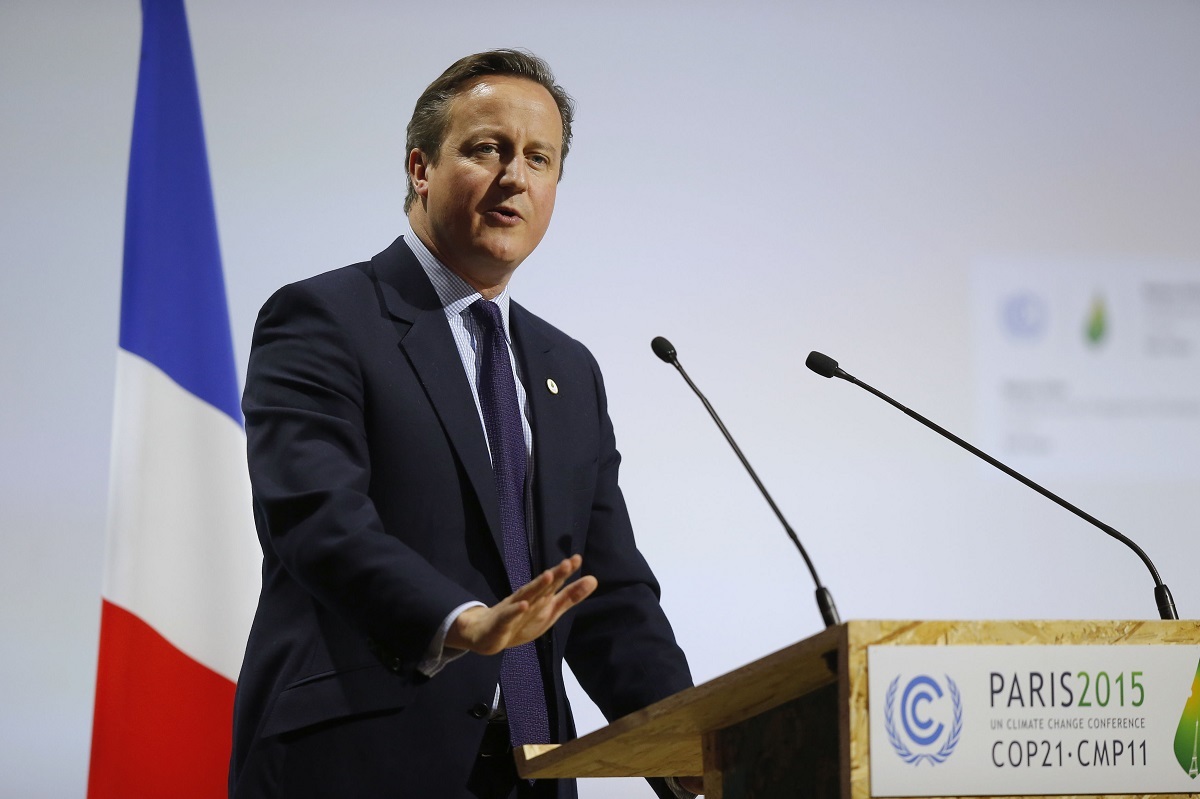
DAVID CAMERON did not intend to brand all opponents of air strikes against Islamic State in Syria as “terrorist sympathisers”, Foreign Secretary Philip Hammond has said.
The Prime Minister infuriated Labour after he urged Conservative MPs not to go through the division lobbies with people who he described as a “bunch of terrorist sympathisers” in tonight’s crucial Commons vote on military action.
A spokesman for Labour leader Jeremy Corbyn denounced his comments – made last night at a private gathering of Tory MPs – as a “desperate slur” which demeaned his office.
But Mr Hammond insisted they were not aimed at long-standing opponents of war like Mr Corbyn, whose views he said were “obviously sincerely held”.
He suggested Mr Cameron was thinking of former London mayor Ken Livingstone – a close ally of Mr Corbyn – who caused outrage with his recent claim that the 7/7 London bombers “gave their lives” for a cause they believed in.
“I suspect that he was referring to some high profile comments that people like Ken Livingstone have recently made which, in my view, are extremely ill-advised and do betray a long strand of sympathy for people that, frankly, most of us would have no sympathy for,” he told ITV1’s Good Morning Britain.
“I don’t think the Prime Minister was intending to characterise the great majority of people who are against us in this debate as in any way holding those views.
“We know that many people on the other side of this debate will have wrestled long and hard with their consciences.”The battle of Britain begins as David Cameron pushes for Syria air strikes – click here to read moreMr Cameron’s remarks – made at a behind-closed-doors meeting of the backbench1922 Committee – were in sharp contrast to his attempts in past weeks to wooopposition MPs to support the extension of RAF strikes on IS into Syria.
Bombing missions are likely to begin within days if the House delivers what the Prime Minister hopes will be a comfortable majority after Mr Corbyn abandoned attempts to impose his anti-war stance on Labour and allowed his MPs a free vote.
The PM’s weekly question time has been cancelled as the Commons decks are cleared for a 10 hour-plus debate on the case for deploying RAF jets against IS – also known as Isil, Isis and Daesh – in Syria.
Up to 50 Labour MPs have been tipped to vote with the Government – including shadow foreign secretary Hilary Benn – resulting in the highly unusual scenario of the two keynote Opposition speeches coming from opposite sides of the debate.
Democratic Unionists and the Liberal Democrats are also backing air strikes, their eight MPs each outweighing the voices of around a dozen Conservatives preparing to defy the party line to oppose action.
But critics of the policy – including the 54-strong Scottish National Party – have been emboldened by criticism of the PM’s case from an influential committee and controversy over his claims of 70,000 moderate Syrian forces on the ground.
Mr Cameron set out his strategy as a direct response to a highly critical assessment by the Foreign Affairs Select Committee (FAC) but it voted by four to three that he “has not adequately addressed concerns” in key areas.Should the UK increase military operations in Syria after Paris attacks – click here to read moreAt least 110 MPs from six different parties have already signed up to an amendment seeking to block air strikes – spearheaded by Tory FAC member John Baron and the SNP’s Westminster leader Angus Robertson.
A YouGov poll for The Times found public opinion moving against air strikes – with the proportion in favour dropping from 59% to 48% and those against rising from 20% to 31% with undecideds unchanged on 21%.
Mr Corbyn said the case for strikes was “coming apart at the seams” – notably the claim of 70,000 moderate forces on the ground to take advantage of air strikes against IS.
“He knows that opposition to his ill-thought-out rush to war is growing,” he wrote in The Guardian.
“On planning, strategy, ground troops, diplomacy, the terrorist threat, refugees and civilian casualties, it’s become increasingly clear the Prime Minister’s proposal simply doesn’t stack up.
“After Iraq, Afghanistan and Libya, MPs thinking of voting for bombing should bear in mind how terrible those consequences can be. Only a negotiated peace settlement can overcome the Isil threat.”
However, Mr Hammond said it was essential to take the fight against IS into the extremists’ Syrian heartlands from where they plotted to carry out attacks on Britain and the West.

Enjoy the convenience of having The Sunday Post delivered as a digital ePaper straight to your smartphone, tablet or computer.
Subscribe for only £5.49 a month and enjoy all the benefits of the printed paper as a digital replica.
Subscribe